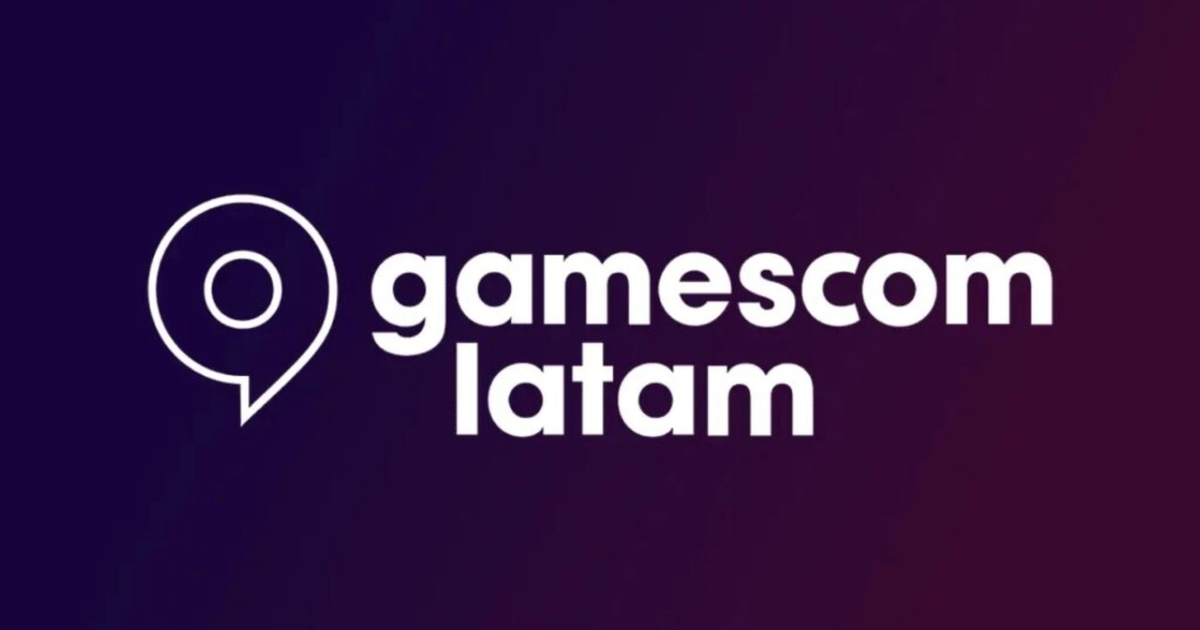A Storm Brews in Latam: Brazilian Devs vs. Gamescom Latam
The world of gaming conventions is often seen as a celebratory space – a place where developers showcase their creations, network with industry professionals, and engage with fans. However, behind the glitz and glamour, a different story has emerged from Gamescom Latam, one that has left a bitter taste in the mouths of several Brazilian game developers. Public accusations of mistreatment have cast a shadow over the event, raising serious questions about the treatment of indie developers and the overall organization of the convention. This report aims to dissect the controversy, examining the allegations, the potential impact on the Brazilian gaming scene, and the broader implications for international gaming events.
The Spark: Initial Accusations
The first signs of trouble appeared on social media, where several Brazilian game developers voiced their concerns and frustrations regarding their experience at Gamescom Latam. These initial posts, often shared on platforms like Twitter and LinkedIn, painted a picture of disorganization, unmet promises, and a general lack of support for the indie developers who had invested time and resources to participate in the event. These accusations quickly gained traction, fueled by a sense of solidarity within the Brazilian game development community.
The Fire: Detailed Allegations
As the initial accusations spread, more developers came forward with specific examples of alleged mistreatment. These allegations can be broadly categorized into the following key areas:
Booth Issues and Logistical Nightmares: Many developers complained about the inadequate size and poor location of their booths. Some reported that their assigned spaces were significantly smaller than promised, making it difficult to showcase their games effectively. Others were placed in poorly lit or hard-to-find areas of the venue, resulting in low foot traffic and minimal exposure. Beyond the physical space, developers also cited issues with the availability of essential equipment, such as power outlets and internet access. Some claimed that they had to scramble to find solutions at the last minute, diverting their attention from promoting their games.
Unfulfilled Promises and Lack of Support: A recurring theme in the allegations was the failure of Gamescom Latam organizers to deliver on promised services and support. Developers stated that they were promised marketing and promotional assistance, opportunities to network with publishers and investors, and access to media coverage. However, many felt that these promises were largely empty, with little to no tangible support provided. This lack of support left developers feeling isolated and undervalued, especially considering the significant investment they had made to attend the event.
Communication Breakdowns and Disorganization: Several developers reported experiencing significant communication breakdowns with the Gamescom Latam organizers. They claimed that their emails and calls went unanswered, and that they struggled to get clear and timely information about important event details. This lack of communication created a sense of uncertainty and frustration, making it difficult for developers to plan and prepare for the event effectively. The disorganization extended to various aspects of the convention, from registration and check-in to scheduling and logistics.
Financial Burdens and Unjustified Costs: Participating in a gaming convention can be a significant financial burden for indie developers, especially those who are self-funded or operating on tight budgets. The cost of booth space, travel, accommodation, and marketing can quickly add up. Several developers alleged that Gamescom Latam charged excessive fees for certain services, such as internet access and equipment rental. Others claimed that they were not properly informed about all the costs involved, leading to unexpected financial strain.
The Fallout: Impact on the Brazilian Gaming Scene
The accusations of mistreatment at Gamescom Latam have had a significant impact on the Brazilian gaming scene. The controversy has eroded trust in the event and raised concerns about the treatment of indie developers at other gaming conventions.
Erosion of Trust: The allegations have damaged the reputation of Gamescom Latam, with many Brazilian developers expressing reluctance to participate in future editions. The event, which was intended to be a platform for showcasing Brazilian talent and fostering growth in the local gaming industry, is now viewed with skepticism and distrust. This erosion of trust could have long-term consequences, making it more difficult for Gamescom Latam to attract Brazilian developers and maintain its relevance in the region.
Increased Scrutiny of Gaming Conventions: The controversy has also led to increased scrutiny of other gaming conventions and events in Brazil. Developers are now more likely to demand transparency and accountability from organizers, ensuring that their rights are protected and that they receive the support they need. This increased scrutiny could lead to positive changes in the way gaming conventions are organized and managed, with a greater focus on fairness, transparency, and developer support.
Empowerment of the Brazilian Game Development Community: Despite the negative experience, the controversy has also had a positive effect on the Brazilian game development community. The shared experience of alleged mistreatment has fostered a sense of solidarity and collective action, empowering developers to speak out against injustice and demand better treatment. This newfound sense of empowerment could lead to greater advocacy for the rights of indie developers and a more collaborative approach to addressing challenges in the industry.
Lessons Learned: Implications for International Gaming Events
The Gamescom Latam controversy holds important lessons for international gaming events, highlighting the need for greater transparency, accountability, and support for indie developers.
Transparency and Communication: Gaming convention organizers must be transparent about their policies, fees, and services. They should also maintain open and effective communication channels with developers, providing timely and accurate information about all aspects of the event.
Fairness and Equity: Gaming conventions should strive to create a fair and equitable environment for all participants, regardless of their size or resources. This includes providing affordable booth options, ensuring equal access to marketing and networking opportunities, and offering support to developers from marginalized communities.
Developer Support: Gaming conventions should prioritize developer support, providing resources and assistance to help developers succeed. This could include offering workshops and training sessions, facilitating connections with publishers and investors, and providing marketing and promotional support.
Accountability and Responsiveness: Gaming convention organizers should be accountable for their actions and responsive to the concerns of developers. They should have mechanisms in place to address complaints and resolve disputes fairly and efficiently.
Moving Forward: A Call for Change
The Gamescom Latam controversy serves as a wake-up call for the gaming industry, highlighting the need for greater respect and support for indie developers. To move forward, gaming conventions must prioritize transparency, fairness, and accountability, ensuring that all participants have a positive and rewarding experience. The Brazilian game development community, empowered by this experience, can play a key role in advocating for change and shaping the future of gaming events. It’s crucial for developers to organize, share experiences, and collectively demand better treatment. This could involve forming associations or unions to represent their interests and negotiate with event organizers.
The industry at large must also recognize the importance of independent developers. They often bring innovation and unique perspectives to the gaming world, and their contributions should be valued and supported. This could involve providing funding opportunities, mentorship programs, and platforms for showcasing their work. By working together, developers, organizers, and the industry as a whole can create a more inclusive and equitable ecosystem for gaming events, ensuring that they serve as a platform for growth, collaboration, and celebration.
Conclusion: A Turning Point?
The Gamescom Latam controversy represents a potentially pivotal moment for the Brazilian gaming scene and the broader world of international gaming events. The allegations of mistreatment have exposed systemic issues related to the treatment of indie developers and the organization of gaming conventions. Whether this moment becomes a true turning point depends on the actions taken by Gamescom Latam organizers, the Brazilian game development community, and the gaming industry as a whole. If lessons are learned and meaningful changes are implemented, the controversy could serve as a catalyst for creating a more fair, transparent, and supportive environment for indie developers, ultimately benefiting the entire gaming ecosystem. However, if the issues are ignored or dismissed, the controversy could have lasting negative consequences, further eroding trust and hindering the growth of the Brazilian gaming industry. The future remains uncertain, but the spotlight is now on, and the actions taken in the coming months will determine whether Gamescom Latam will be remembered as a cautionary tale or a turning point in the evolution of gaming events.

